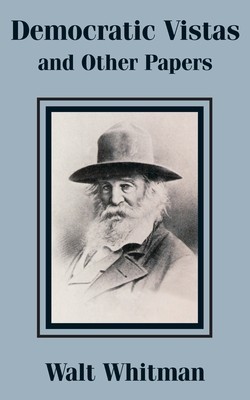
- We will send in 10–14 business days.
- Author: Walt Whitman
- Publisher: Fredonia Books (NL)
- Year: 2002
- Pages: 184
- ISBN-10: 1410100669
- ISBN-13: 9781410100665
- Format: 14.4 x 19.1 x 1.1 cm, minkšti viršeliai
- Language: English
- SAVE -10% with code: EXTRA
Reviews
Description
Walt Whitman (1819-1892) contributed to the greatest prose of American letters with Democratic Vistas, now considered a classic discussion of the theory of democracy and its possibilities. In this essay he protests the unrestrained materialism, greed, corruption and spiritual failure of what, two years later, Mark Twain would label "The Gilded Age." Whitman criticizes America for its "mighty, many-threaded wealth and industry" that mask an underlying "dry and flat Sahara" of soul. He calls for a new kind of literature to revive the American population: "Not the book needs so much to be the complete thing, but the reader of the book does." Whitman was one of the few writers to keep the Emersonian faith in individual and cultural regeneration after the Civil War.
EXTRA 10 % discount with code: EXTRA
The promotion ends in 22d.19:22:06
The discount code is valid when purchasing from 10 €. Discounts do not stack.
- Author: Walt Whitman
- Publisher: Fredonia Books (NL)
- Year: 2002
- Pages: 184
- ISBN-10: 1410100669
- ISBN-13: 9781410100665
- Format: 14.4 x 19.1 x 1.1 cm, minkšti viršeliai
- Language: English English
Walt Whitman (1819-1892) contributed to the greatest prose of American letters with Democratic Vistas, now considered a classic discussion of the theory of democracy and its possibilities. In this essay he protests the unrestrained materialism, greed, corruption and spiritual failure of what, two years later, Mark Twain would label "The Gilded Age." Whitman criticizes America for its "mighty, many-threaded wealth and industry" that mask an underlying "dry and flat Sahara" of soul. He calls for a new kind of literature to revive the American population: "Not the book needs so much to be the complete thing, but the reader of the book does." Whitman was one of the few writers to keep the Emersonian faith in individual and cultural regeneration after the Civil War.


Reviews